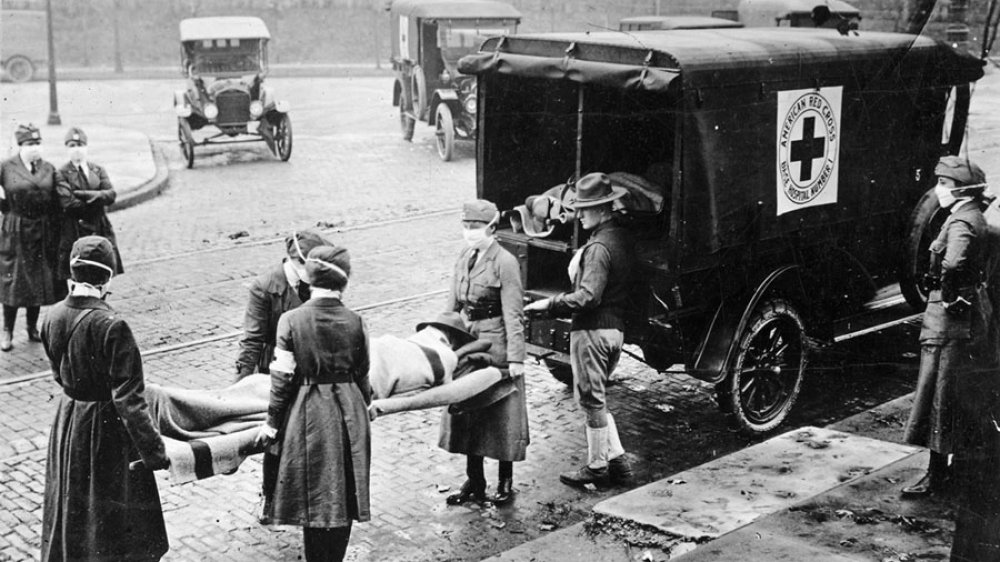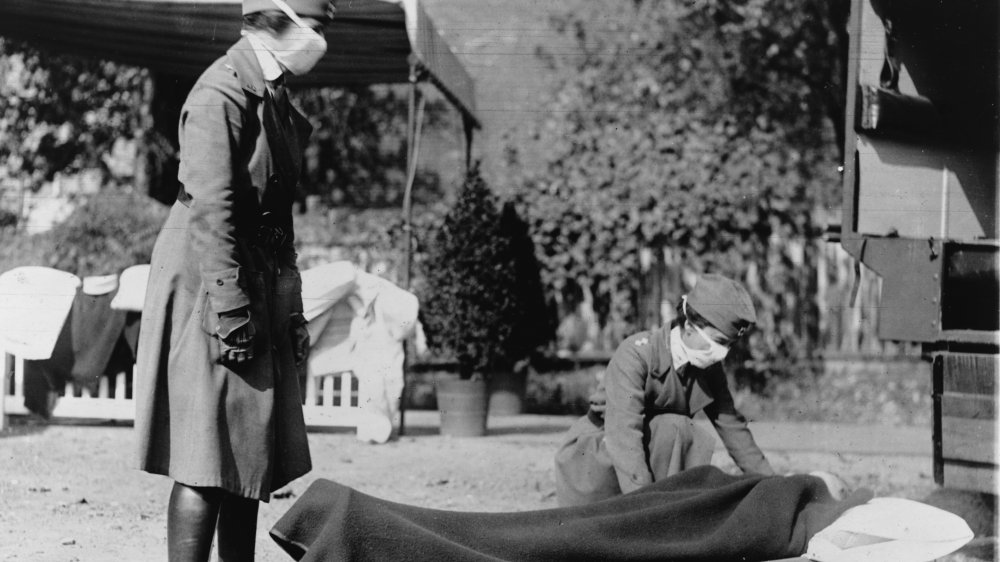Why Was The 1918 Flu Pandemic Called The 'Spanish Flu'?
The 1918 flu pandemic that claimed between 50 and 100 million lives worldwide has often been referred to as the "Spanish flu." Yet per the Journal of Translational Medicine, the outbreak most likely began in Haskell County, Kansas ... which, geographically speaking, isn't in Spain. Whereas the flu likely spread to Spain via France in May 1918, via the journal Clinical and Infectious Diseases, Haskell got hit in late January to early February of that year. The county experienced an unprecedented spate of deaths as the sturdiest residents "were being struck down as suddenly as if they had been shot" before developing a devastating pneumonia. Local physician Dr. Loring Miner knew an unusual flu epidemic was afoot.
Though the flu vanished from Haskell in a matter of weeks, Miner was so alarmed by its lethality that he alerted public health officials about it. In the meantime, a nasty influenza ambushed Camp Funston (present-day Fort Riley) in Kansas. The Kansas City Star reports that thousands of soldiers fell ill and 38 men died. But even as they fought an uphill battle against the virulent infection, tens of thousands of Kansas-trained troops would travel to Europe, where the pandemic erupted six to eight months later. How on Earth did a virus that seems to have spread from Kansas to France to Spain come to be called the "Spanish flu?" And why didn't the world heed Miner's warning?
The world's war on truth
As recounted in the Journal of Translational Medicine, after Dr. Loring sounded the alarm about a hellaciously dangerous flu that temporarily crippled Haskell County, Kansas, the warning mostly flew under the radar. Even the media coverage of Haskell's outbreak had downplayed flu's impact. This wasn't an accident or even journalistic negligence but rather a concerted effort to prevent the public from getting bummed out about the flu during wartime.
According to the National Academy of Sciences, during WWI the United States aggressively suppressed speech that could potentially dampen enthusiasm about the war. It even passed legislation making it a criminal offense punishable by 20 years in prison to "utter, print, write or publish any disloyal, profane, scurrilous, or abusive language about the government of the United States." The press played its part by downplaying the seriousness of the budding flu outbreak.
The U.S. wasn't alone in silencing negative information. Every nation fought reality for control over the narrative. As the Guardian describes, wartime censorship prevented French civilians from discovering the severity of the virus they were facing. Spain remained neutral during the war, however, and its press remained free to report on the hidden pandemic. Because Spanish press spread awareness about the virus ripping through its population while other countries remained mum, the flu got named after Spain.

